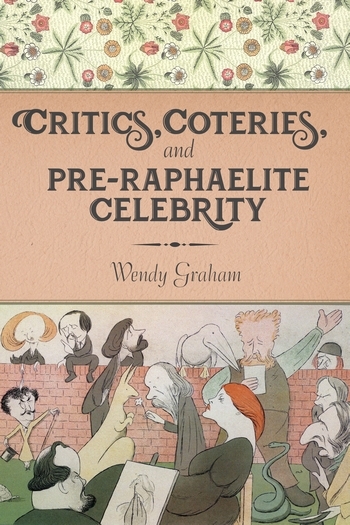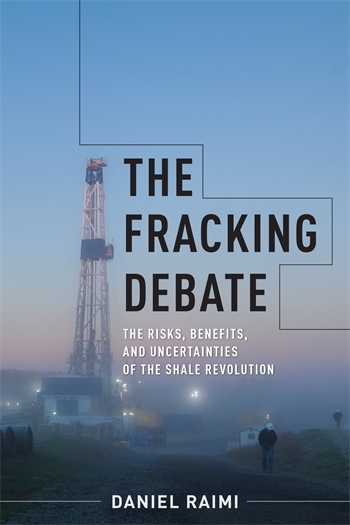No Publicity is Bad Publicity

Wendy Graham, author of Critics, Coteries, and Pre-Raphaelite Celebrity, discusses the media studies angle of her book. The merits of signature figured prominently in the critical fracas erupting from the Fleshly School controversy (1871-1876), which stoked an internecine battle for the soul of Victorian print media while providing tabloid quality media fodder.
My argument tracks Pre-Raphaelitism’s influence on industry and cultural trends promoting signed review-articles, calumniating reviewer anonymity, puffery, and slander, all the while capitalizing on scandal and negative publicity to sell papers. Journals of the period accepted pseudonymity as a matter of course, although signature was gaining favor. The sticking point was that the Contemporary Review stood in the vanguard of journals featuring signed articles, and Robert Buchanan had used the alias, Thomas Maitland, for “The Fleshly School of Poetry: Mr. D.G. Rossetti” (1871). Priggish, didactic, and partisan, Buchanan’s diatribe upheld retrograde Victorian attitudes towards sexuality and art. Demonstrating the salience of negative publicity, Buchanan succeeded in enlarging the Pre-Raphaelites’ fame, an unintended consequence of singling them out for censure in the press.
Why spend time discussing the machinations of “a barely-recognised fourth-rate” Victorian poet, whose small renown did not outlive him? Infamous for having written “wicked insinuations” about the poet-painter Rossetti that unhinged his mind but never lessened his fame, even for a moment, Buchanan was consigned to a footnote in literary history, as the critic who had harassed a genius: “The fact is that ‘Thomas Maitland,’ though his murder of Rossetti is his chief claim to human recollection, need boast of it but little.” Buchanan was a period informant with skin in the game. He rode my protagonists’ coattails by competing with and chastising them. He represented the anti-Pre-Raphaelite lobby, which kept tabs on their relations with the press. He was himself a press stalwart. Though Buchanan’s critique of the fraternities for championship blazing a trail for Pre-Raphaelite luminaries was perfectly justified, his tactics were not above board. Speciously arguing, “the anonymous press is a tremendous check on this sort of humbug,” Buchanan took pot shots at his enemies under the double cover of pseudonymity and the banner of sincerity, as his victims charged.
In 1877, Buchanan published another incendiary article in the Contemporary Review denouncing fleshly trends at high-priced society journals, such as Vanity Fair, and gossip mongering at the World. The article was unsigned, but scuttlebutt quickly disclosed Buchanan’s authorship. Stung by the attack, yet unwilling to accuse an old friend of treachery, the editor of the World, Edmund Yates, wrote to Buchanan asking him to confirm or deny the attribution. Receiving no reply, Yates unleashed a torrent of invective against Buchanan in a signed article, “A Scrofulous Scotch Poet,” published in his newspaper. Pictured as penniless, ragged, flea bitten, and dirty, the young Robert Buchanan literally begged Yates for work to keep starvation at bay: “as I looked at him, I could not help thinking of the practical benevolence of the Duke of Argyll, and of the vaunted virtues of Keating’s insect powder.” Yates succored Buchanan in his time of need: “I honestly believe it was wholly and solely through me, and those acting with me, that he did not actually die of starvation, and add one more to the number of those self-sufficient low-born lads who, confident of their own genius, exchange the dung-fork for the steel-pen, and the country farmyard for the London grave.” Berating Buchanan for disloyalty to a former benefactor and well wisher, Yates reprised charges that Buchanan had pseudonymously “stabbed some great reputations in the back, and had his moral ulcers laid bare by the scalpel of judicial cross examination,” a reference to the recent libel trial, Buchanan v. Examiner, which focused attention on Buchanan’s hypocrisy and duplicity. By turns blistering and humiliating, Yates’s article was a media sensation in its own right, prompting Yates to worry that he was “play[ing] into my enemies’ hands by giving them a gratuitous advertisement,” confirming once more that scandal promoted sales; yet, the days of critical anonymity were numbered.
1.“The Poetical Works of Robert Buchanan,” London Quarterly Review 43:85 (October 1874): 213.
2. “Dante Gabriel Rossetti. his Family Letters,” Saturday Review, 839.
3. Robert Buchanan, The Fleshly School of Poetry and Other Phenomena of the Day (London, 1872), 71.
4. “A Scrofulous Scotch Poet,” Evening Post (Jan. 1878): 1. were numbered.
5. “Poets and Libels,” Once a Week (July 1876): 265.


